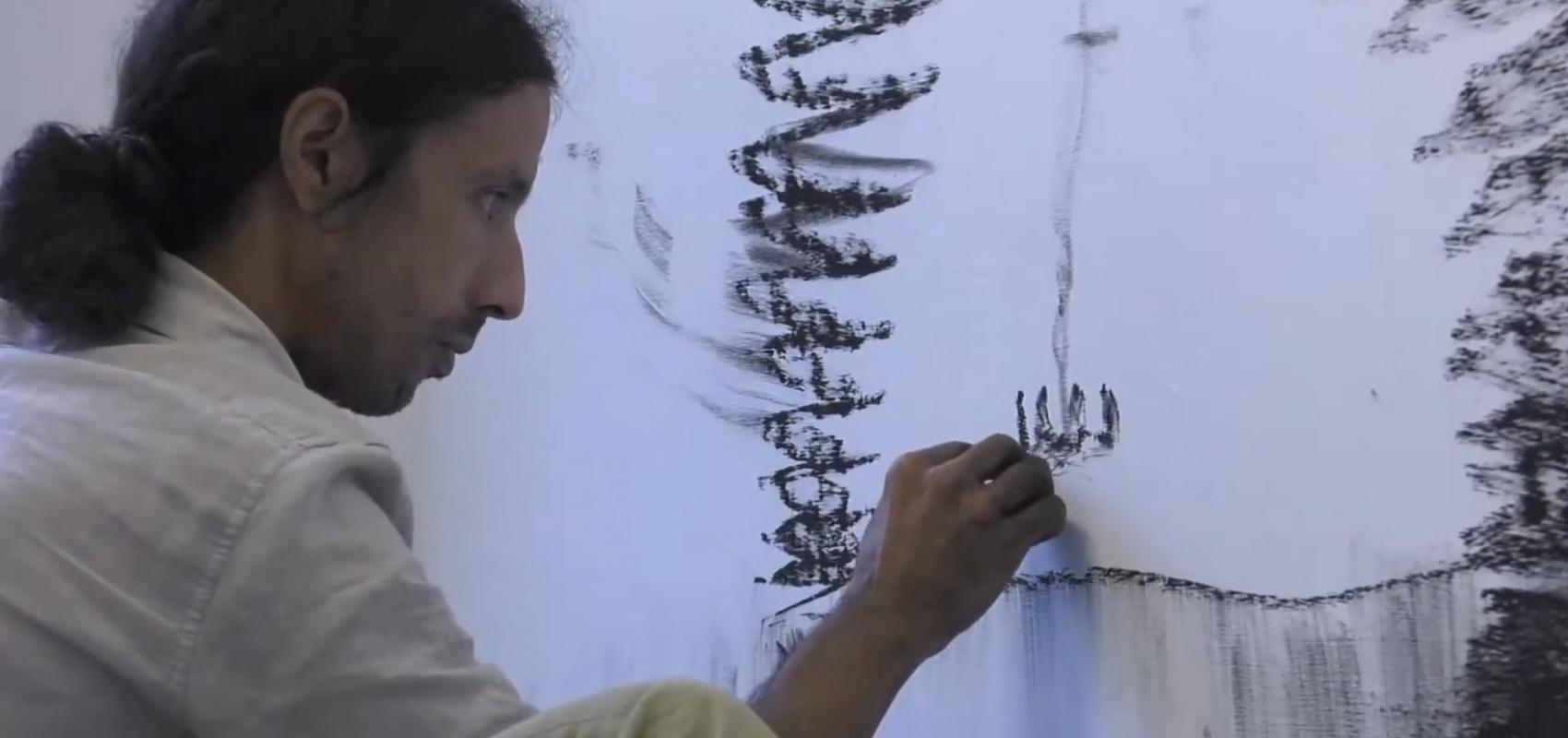Irving Vera seems to live almost always in another world, in an alternative universe where the magic of drawing seems to trap him in any of the realities.
For him the most important thing is poetry, but not in its strictest or literal sense, but that his works motivate, inspire and are capable of transforming. Those who know Irving know that he is a calm, observant man with an intense gaze. He gives no indication of an agitated mind, but the creator confesses to be quite the opposite. He claims to be agitated by the many possibilities offered by the blank canvas, although it does not necessarily have to be this support, a wall is enough to express his creative ingenuity.
What makes you choose drawing?
I think what I've done the most is ink drawing, almost always in black and white. I've also done graphite and this one I've just done now in Máxima, where I use dry pastel. I have chosen drawing since I was in school, it is a very immediate technique that requires relatively little infrastructure and few logistics. It allows you to capture in a very direct way whatever you want. I have always relied on improvisation and it is also a good medium for the same reasons: the ease of requirement in materials and immediacy in emotions. I've always been interested in working within very strict limits, because I tend to see too many possibilities in things. I see thousands of paths, thousands of possibilities and that tends to block me. I need to produce for a question of internal rhythms, I need to do things for my emotional or experiential tranquility. I like oriental painting very much, the one coming from China and Japan. It is a painting that has been done practically in black and white.
Apart from oriental painting, what sources has Irving Vera drawn from?
From Japanese literature, from Japanese aesthetics in general, of course also from a good part of European poetry and some Latin American and national poetry. Borges influenced me a lot at one time. Life offered me teachers in the country like Gabriel Calaforra, Gustavo Pita, Eduardo Ponjuan. I was also influenced by the haiku tradition (my research at the Autonomous University of Mexico (UNAM) is on that genre of Japanese poetry), as well as the poetry of European romanticism, not limited to what was the romantic period of literature, but to romanticism understood as an emphasis on the emotional aspect of artistic creation.
Speaking of poetry... poetic synthesis is a quality we can find in your work. Has it always been that way?
I think it's a natural thing. Visually I tend to do synthetic things, I'm given to that kind of organization of images, even though I consider myself a complicated person and it's pleasantly paradoxical. They are the simple drawings of a complicated person, my head is always full of things and yet when I draw it's the opposite. There is probably some link there.
How productive can Irving Vera be?
It has taken me time to realize that I am not an artist who is constantly producing and it has been problematic for me, because the academic training was focused on forming professionals with a sustained practice. I was told things like "you have to draw daily", "you have to be producing all the time", "as soon as you finish you start again" and I really need time also to fill the water well, as I say, to load myself with experiences that nourish the poetic part. In my case I am not interested at all in being exclusively a technical artist. The poetic is much more important than the technical. In the end the technical is coordinated when there is a strong poetic intention.
Published 26/5/2021
"I'm not interested in being exclusively a technical artist" (Part I).
Irving Vera at Maxima gallery.





